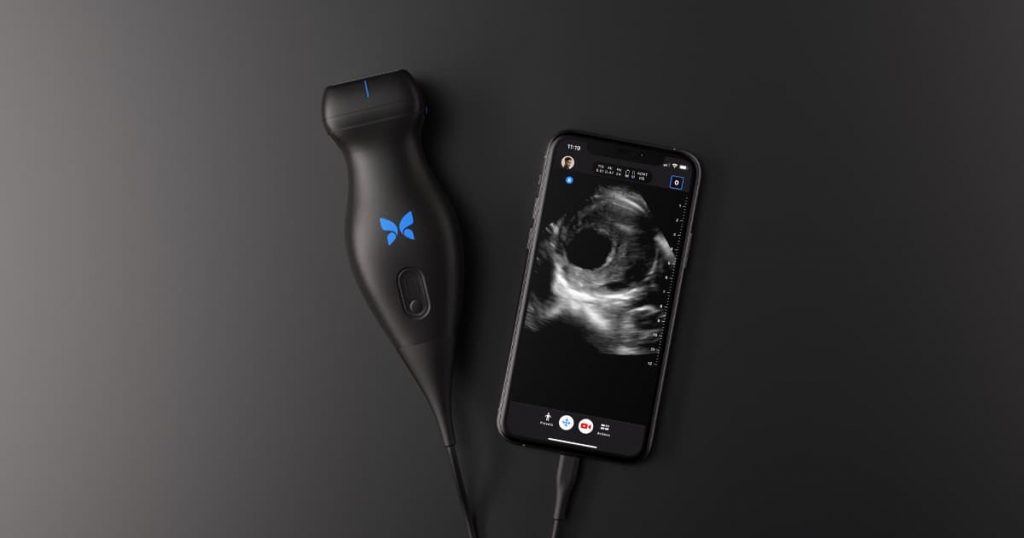advertisement
Novartis, UNES, Heart Centre Join Forces For Quality Heart Health In Kenya
Today, Novartis, University of Nairobi Enterprises & Services (UNES) Ltd, and The Heart Centre unveiled a partnership that aims to…

Today, Novartis, University of Nairobi Enterprises & Services (UNES) Ltd, and The Heart Centre unveiled a partnership that aims to broaden access to cardiovascular diagnosis in Kenya.
Novartis handed over 30 Butterfly iQ™ ultrasound devices to UNES and The Heart Centre to equip trained doctors who have no access to essential ultrasound equipment, particularly in rural areas across the country. The handheld portable ultrasound devices connected to a mobile phone enable imaging of body organs and tissues at the convenience of a patient, moving away from the bulky and expensive standard echocardiogram equipment.
advertisement
According to the World Health Organization (WHO), 17.9 million people die from cardiovascular diseases (CVDs) every year, representing 31 percent of deaths worldwide. In Kenya, pre-COVID-19, 13 percent of fatalities were CVD-related, accounting for 25 percent of hospital admissions, according to the National Stepwise Survey of 2015. A recent WHO survey also revealed that shutting or slowdown in services for non-communicable diseases (NCDs) is likely to worsen patients’ underlying conditions, leading to more severe cases. Additionally, people with heart disease are, in fact, at a much-increased risk of dying from COVID-19 infection.
advertisement
“There has never been a better time to collaborate to strengthen healthcare systems, broaden patient access and build capacity as the world combats COVID-19,” said Racey Muchilwa, Head of Novartis sub-Saharan Africa region. “Thanks to this partnership, we will be able to significantly shorten diagnosis of heart patients who previously traveled long distances to seek medical help, while making echos more affordable, particularly in rural Kenya, where we have a vast majority of unmet patient needs.”
Under the partnership, Butterfly iQ™ ultrasound devices will be distributed to the select trained doctors spread across the country at no cost. Currently, the cost of an echo ranges between KES 5000-8500, but with the donated ultrasound devices, costs can be significantly reduced to about KES1500, hence improving affordability and access for patients. The program aims to reach at least 36 000 patients per year.
advertisement
“Public-private-partnerships are crucial for innovative thinking and joint action to strengthen our healthcare systems through capacity building,” said Seith Abeka, the Acting Managing Director of UNES Limited. “We celebrate the incredible milestone that not only equips frontline doctors with cutting-edge diagnosis equipment but also with the necessary expertise to bring quality care, particularly to the underserved communities in Kenya.”
As part of the partnership, 115 healthcare professionals have been trained in Cardiac Diagnosis and Echocardiogram across the country since February 2018. Previously, in 2017 and 2018, there were only 20 doctors who could do echocardiograms. Out of the 115, Novartis has sponsored 70 doctors, while various county governments or self-sponsorship funded the rest. With this training, the trained doctors, most of whom are based in primary levels of care, will have access to the crucial imagining of each of the chambers of the heart, measure the cardiac wall thickness, and determine the heart function in cases of reduced output.
“Diagnosis is critical for treatment outcomes, particularly for cardiovascular conditions and without proper training, late management could be fatal,” said Dr. Fred Bukachi, a cardiologist and Director at the Heart Centre. “The Butterfly iQ™ ultrasound can diagnose cardiac conditions and at regular intervals, provide information on response to treatment, adherence, and other parameters that would improve patient outcomes. With 100 echos done per device per month, we expect a significant change in the individual health of the patient as a diagnosis will be received faster, without the need to travel hundreds of kilometers.”